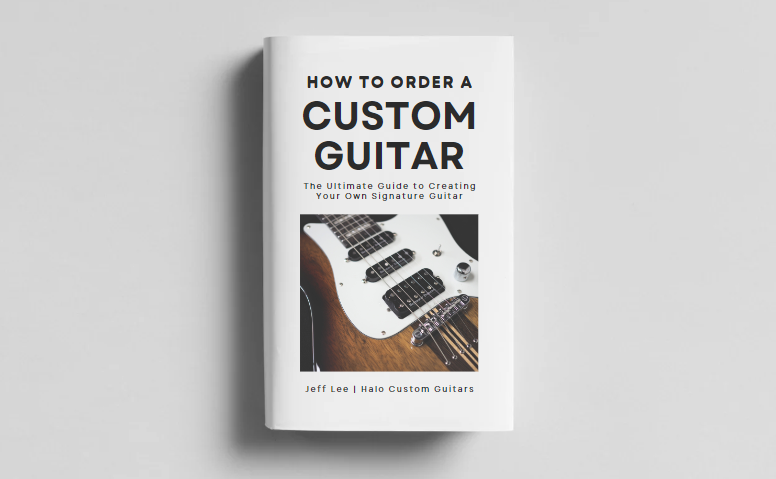Imagine you were having a custom guitar made for you. Would you know how to go about every step in the process? If you're like most, you've never had a guitar made completely to your specs.
Learn how to think about the ordering process in general, and take a deep dive into electric guitar & bass customization in our free guidebook:
Some topics covered in the guidebook include:
- What is a custom shop guitar?
- Why do custom guitars cost more?
- How long does it take to build a guitar?
- How do I ensure that I’ll like the guitar?
And in-depth discussion on all the customizable areas of a guitar, such as:
- Body
- Neck
- Headstock
- Fretboard
- Hardware
- Pickups
- Electronics
The guidebook will help you discover what’s possible when it comes to designing, configuring and ultimately owning your own ‘signature’ electric guitar that’s 100% custom-made to your requirements and preferences.
DOWNLOAD CUSTOM GUITAR GUIDEBOOK:
https://www.haloguitars.com/store/how-to-order-a-custom-guitar-download

